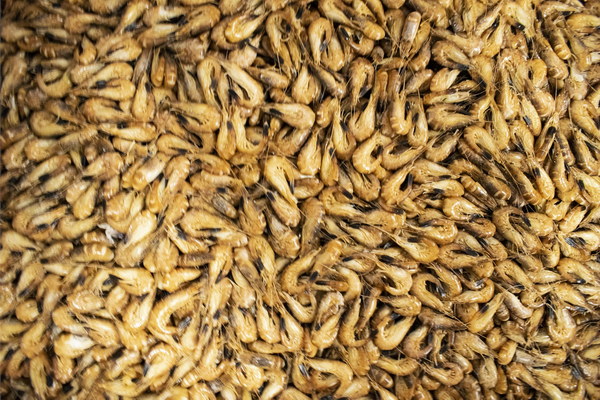Is Nourishing the Nervous System in Traditional Chinese Medicine Synonymous with Kidney Care
Traditional Chinese Medicine (TCM) is a comprehensive healthcare system that has been practiced for thousands of years. It focuses on maintaining the balance of the body's internal energy, or Qi, and correcting imbalances to restore health. One of the fundamental principles of TCM is the belief that the nervous system is closely linked to the kidneys. So, the question arises: is nourishing the nervous system in TCM synonymous with kidney care? Let's delve into this topic to find out.

In TCM, the kidneys are considered the root of one's life force, or Jing. The kidneys are responsible for storing and distributing Jing, which is the essence of one's energy and vitality. The nervous system, on the other hand, is crucial for coordinating the body's functions, including motor control, sensory perception, and homeostasis.
The belief that nourishing the nervous system is equivalent to kidney care is rooted in the interconnectedness of the two systems. According to TCM, when the kidneys are healthy, Jing is abundant, which in turn supports the nervous system's proper functioning. Conversely, when the kidneys are weak, Jing becomes depleted, leading to nervous system imbalances and various health issues.
Here are some ways in which TCM aims to nourish both the nervous system and the kidneys:
1. Acupuncture: Acupuncture involves inserting fine needles into specific points on the body to stimulate Qi flow and promote healing. By targeting points related to the kidneys and nervous system, acupuncture can help restore balance and improve overall health.
2. Herbs: TCM utilizes a wide array of herbs to nourish the kidneys and nervous system. Some commonly used herbs include:
- Astragalus (Huang Qi): Known for its immune-boosting properties, Astragalus can help strengthen the kidneys and support the nervous system.
- Rehmannia (Shu Di Huang): This herb is used to nourish the kidneys, blood, and yin, which can help improve nervous system function.
- Codonopsis (Dang Shen): Codonopsis is an adaptogen that can help reduce stress and support the nervous system.
3. Diet: TCM emphasizes the importance of a balanced diet that includes foods that nourish the kidneys and nervous system. Foods such as black beans, goji berries, walnuts, and seaweed are believed to have kidney-nourishing properties.
4. Exercise: Regular physical activity is essential for maintaining a healthy nervous system and kidneys. TCM encourages gentle exercises like tai chi, qigong, and yoga, which help to harmonize Qi and improve overall well-being.
5. Stress management: Chronic stress can weaken the kidneys and disrupt nervous system function. TCM emphasizes the importance of stress management techniques, such as meditation, deep breathing exercises, and mindfulness, to maintain a healthy balance between the two systems.
While it is true that TCM views the nervous system and kidneys as interconnected, it is not entirely accurate to say that nourishing the nervous system is synonymous with kidney care. While both systems benefit from similar treatments and lifestyle adjustments, they are distinct entities with unique functions and imbalances.
In conclusion, while TCM acknowledges the close relationship between the nervous system and kidneys, it is important to recognize that they are not one and the same. By understanding the specific needs of each system and employing a holistic approach to treatment, TCM can effectively nourish both the nervous system and kidneys, leading to overall health and well-being.









